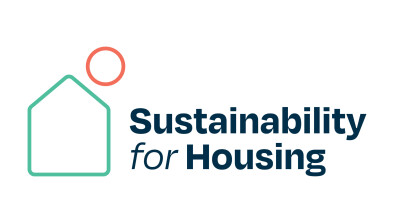Sustainability for Housing calls on sector to help shape updated ESG reporting standard

Brendan Sarsfield
Sustainability for Housing (SfH) has launched a consultation seeking feedback from adopters of the Social Housing Sustainability Reporting Standard (SRS) and the wider sector as it looks to shape the next iteration of the Standard to meet needs of the sector and its funders.
The SRS was launched in November 2020 as a voluntary reporting framework designed to enable housing providers to report on their performance across environmental, social and governance (ESG) metrics in a transparent, consistent and comparable manner.
More than 100 housing providers and funders have now adopted the SRS, which is overseen by SfH, an independent company run by a voluntary board made up of experienced professionals from the affordable housing and financial services sectors.
The SRS currently enables housing associations to demonstrate performance to key stakeholders including funders, staff, residents and partners, across a whole host of business-critical areas, from rents and new homes delivery, customer satisfaction and social value, to energy efficiency and carbon emissions, board diversity and gender pay.
SfH, is now asking housing associations, funders and businesses from across the sector to help ensure the standard and its criteria remains challenging, consistent and relevant.
Brendan Sarsfield, chair of SfH, said: “As we approach the two-year anniversary of the SRS, we are delighted to have accrued more than 100 adopters in the UK social housing sector.
“But this is still the start of the journey. We have always been committed to continuously improving the Standard, hand-in-hand with housing providers and the financial community.
“The end goal remains the same – to help the sector attract the finance it needs, demonstrate to stakeholders where we are going, show leadership on ESG and speak with one collective voice while helping drive better performance, greater transparency and accountability.
“Now we need to hear from as many adopters as possible, along with any interested parties and future adopters, to understand what is working and what could be improved with the Standard.”
In May, SfH’s ‘One Year In’ report revealed adopters of the SRS accounted for more than 1.5 million affordable homes – equivalent to 34% of England’s social housing stock. It had also been adopted by financial institutions with assets under management of more than £1 trillion.
SfH said the SRS, which consists of 48 criteria across 12 themes, needs to remain relevant to the needs of users while aligning with emerging regulations and the fast-moving world of corporate ESG reporting.
In order to gather feedback, SfH will be hosting six virtual working groups for the adopter community across October and November.
Beyond these working groups, SfH will circulate a feedback survey and conduct various interviews with the adopter community, to better understand any challenges faced in 2022 reporting, and the evolving use and role of the standard.
Alongside the consultation process SfH will review the 2022 SRS reports and the unfolding regulatory reporting requirements in the UK, Europe and globally.
The group expects a draft version 2.0 of the SRS to be released for public consultation in the first half of 2023, with the final version launched in Summer/Autumn 2023.
SfH is also currently in the process of launching a new website which will include an ‘adopter hub’ through which adopters can share knowledge and best practice.
Sarah Forster, SfH board member and chief executive of The Good Economy, which acts as secretariat to SfH, added: “The world of ESG is moving at pace and we need to ensure the Standard is staying on the pulse, if not ahead of the curve.
“It’s critical that we bring everyone with us on this next stage of the sector’s sustainability reporting journey, so that the sector as a whole can reap the benefits of a joined up approach to ESG.”








